
| Starting price | $12 |
|---|---|
| Pricing model | Per User |
| Free Trial | No |
| Free Version | Yes |
In today’s connected world, efficient file sharing is essential for businesses and individuals to collaborate seamlessly. The best file sharing software enables users to securely share, store, and access files from anywhere, which promotes collaboration, increases productivity, and simplifies document management.
Our curated list contains the best file sharing software available, carefully selected based on extensive research and analysis. Discover our top recommendations and find the perfect software for your needs that lets you share, access, and collaborate on files securely.

| Starting price | $12 |
|---|---|
| Pricing model | Per User |
| Free Trial | No |
| Free Version | Yes |
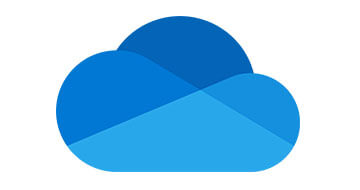
| Starting price | $1.99/ mo |
|---|---|
| Pricing model | Per User |
| Free Trial | No |
| Free Version | Yes |
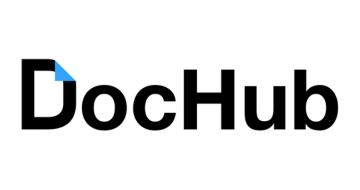
| Starting price | $10/mo |
|---|---|
| Free Trial | Yes |
| Free Version | Yes |
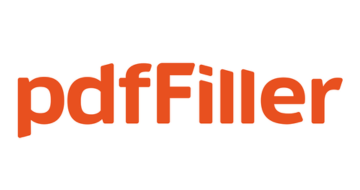
| Starting Price | $20/mo |
|---|---|
| Free Version | No |
| Free Trial | Yes |
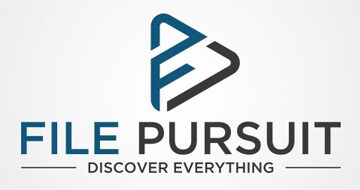
| Starting price | Free |
|---|---|
| Pricing model | Free (Open Source) |
| Free Trial | Yes |
| Free Version | Yes |
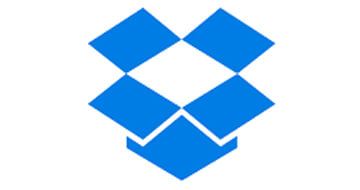
| Starting price | $11.99/mo |
|---|---|
| Pricing model | Per User |
| Free Trial | 30-day |
| Free Version | No |
File sharing software transforms how organizations manage, distribute, and collaborate on digital content by creating a centralized, secure environment where teams can access files from anywhere, at any time.
Rather than relying on fragmented storage methods like email attachments, USB drives, or local servers, these platforms establish a unified digital workspace that scales with your business needs.
It operates by synchronizing files across multiple devices and locations while maintaining strict access controls and version management. Users can grant specific permissions, from view-only access to full editing rights, ensuring sensitive information remains protected while enabling productive collaboration.
Modern file-sharing platforms eliminate the inefficiencies of email attachments and manual file transfers, offering instant access with automated backup capabilities.
File sharing software represents a comprehensive document management solution that accelerates storage processes and enhances real-time collaboration capabilities. Unlike traditional data management software, modern file sharing platforms integrate collaborative features directly into the storage framework.
Configure granular access permissions for specific users, implementing restrictions from read-only viewing to full editing capabilities. During system outages or hardware failures, your files remain protected through redundant cloud backup systems. Data recovery becomes effortless, safeguarding valuable documents against permanent loss.
Key business transformation areas include:
Eliminate time-consuming email chains and manual file transfers. Teams access the latest document versions instantly, reducing miscommunication and version conflicts.
Replace expensive on-premise storage infrastructure with scalable cloud solutions. Pay only for actual usage while benefiting from enterprise-grade security without dedicated IT resources.
Enable simultaneous editing, real-time commenting, and automated workflow approvals. Teams collaborate seamlessly across time zones and devices.
Implement automated backup schedules, version history tracking, and compliance-ready audit trails. Recover from accidental deletions or system failures within minutes.
Accommodate business growth without infrastructure investments. Add users, increase storage, and expand feature sets as needed.
| Platform | Market Share | Storage Limit (Free) | Key Differentiator | Best For |
|---|---|---|---|---|
| Google Drive | 31.19% | 15 GB | Deep Google Workspace integration | Small to medium businesses |
| Microsoft OneDrive | 6.64% | 5 GB | Seamless Windows ecosystem integration | Microsoft-centric organizations |
| Dropbox | Major player | 2 GB | Advanced sync capabilities | Creative teams and agencies |
| Box | Enterprise focus | 10 GB | Enterprise security features | Large corporations |
| pCloud | Growing | 10 GB | Client-side encryption | Security-conscious businesses |
Modern file sharing platforms implement multi-layered security protocols that exceed traditional on-premise solutions. Enterprise file sync and sharing (EFSS) platforms prioritize end-to-end encryption and granular access controls.
| Security Feature | Enterprise Standard | Leading Platforms | Business Impact |
|---|---|---|---|
| End-to-End Encryption | 256-bit AES | All major platforms | Prevents data breaches during transit |
| Zero-Knowledge Architecture | Advanced feature | pCloud, Tresorit | Complete privacy from service providers |
| Granular Access Controls | Role-based permissions | Box, ShareFile | Minimize insider threats |
| Compliance Certifications | SOC 2, GDPR, HIPAA | Enterprise platforms | Meet regulatory requirements |
| Audit Trails | Complete activity logs | All enterprise solutions | Support compliance reporting |
Advanced tagging systems and AI-powered search capabilities help locate files instantly. Metadata-driven organization eliminates folder hierarchy limitations, enabling flexible content discovery.
Comprehensive version tracking with detailed change logs prevents document conflicts. Restore previous versions effortlessly or compare changes across multiple iterations.
Simultaneous editing capabilities with live cursor tracking and instant notifications. Integrated commenting systems streamline feedback collection and approval processes.
Connect file sharing platforms with existing business applications. Trigger automated processes based on file activities, such as approval workflows or client notifications.
Native mobile applications ensure consistent functionality across all devices. Offline synchronization maintains productivity during network disruptions.
The increasing number of cyber threats has escalated demand for robust file sharing security. Organizations must evaluate platforms based on comprehensive security frameworks rather than basic encryption alone.
Data Sovereignty Requirements: Select platforms offering regional data storage options to comply with local regulations. Understand data residency implications for international operations.
Industry-Specific Compliance: Healthcare organizations require HIPAA-compliant solutions, while financial services need SOX compliance. Educational institutions benefit from FERPA-compliant platforms.
Access Management Protocols: Implement single sign-on (SSO) integration with existing identity management systems. Configure multi-factor authentication for enhanced security.
Our comprehensive evaluation methodology considers multiple factors that impact real-world business performance. We analyze platforms based on security implementation, collaboration feature depth, integration ecosystem breadth, and total cost of ownership.
Focus on ease of use, cost-effectiveness, and growth scalability. Google Drive and OneDrive offer excellent value with integrated productivity suites.
Prioritize advanced collaboration features, security controls, and integration capabilities. Consider platforms with robust administrative controls and compliance features.
Demand comprehensive security frameworks, extensive integration ecosystems, and dedicated support resources. Evaluate the total cost of ownership including training and administrative overhead.
Creative agencies benefit from platforms that optimize large file transfers and visual preview capabilities. Healthcare organizations require HIPAA compliance and enhanced access controls. Financial services need robust audit trails and regulatory compliance features.
Develop comprehensive migration strategies that minimize business disruption. Test file transfer processes with sample data before full deployment. Train key users on new platform capabilities before organization-wide rollout.
Implement least-privilege access principles from day one. Configure role-based permissions that align with organizational hierarchy. Regularly audit and update access rights as team structures evolve.
Provide comprehensive training programs that address different user skill levels. Create internal documentation and support resources. Establish feedback channels for continuous improvement.
Technology landscapes evolve rapidly, making platform longevity a critical selection factor. Evaluate vendors based on innovation track records, financial stability, and commitment to emerging technologies.
Ensure platforms accommodate projected growth without architectural limitations. Consider how pricing models align with expansion plans. Evaluate technical infrastructure capacity for future demands.
Assess vendor commitment to maintaining and expanding integration partnerships. Consider platforms with robust API ecosystems supporting custom integrations. Plan for future business tool additions and compatibility requirements.
Monitor vendor investment in artificial intelligence, machine learning, and automation capabilities. Consider platforms positioning themselves for future collaboration paradigms. Evaluate commitment to security innovation and compliance evolution.
The file-sharing software landscape continues evolving as organizations demand more sophisticated collaboration capabilities. Success depends on selecting platforms that balance current needs with future growth requirements while maintaining security and compliance standards. Our comprehensive software reviews provide detailed analysis to guide your selection process and ensure optimal platform alignment with your business objectives.